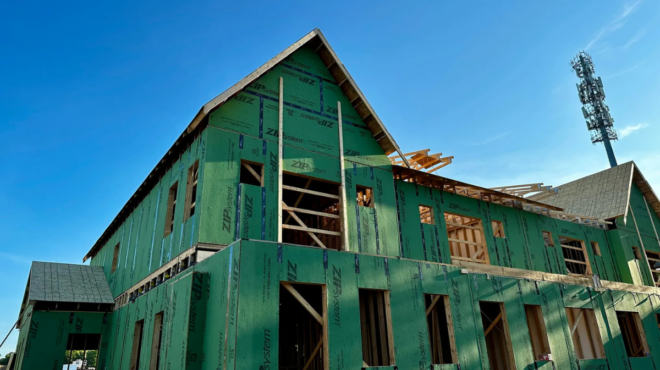Acknowledging the Harm of the Death Penalty
 The Episcopal Church has formally acknowledged the harm of the death penalty since at least 1958. This opposition is based on New Testament precepts of the sanctity of life, the importance of forgiveness, and the ever-present possibility of redemption. More recently, church leaders have also cited the graphic social and racial disparities in the application of the death penalty.[1] This is the long-standing progressive Christian view in opposition to the death penalty.
The Episcopal Church has formally acknowledged the harm of the death penalty since at least 1958. This opposition is based on New Testament precepts of the sanctity of life, the importance of forgiveness, and the ever-present possibility of redemption. More recently, church leaders have also cited the graphic social and racial disparities in the application of the death penalty.[1] This is the long-standing progressive Christian view in opposition to the death penalty.
That is not to say all religious and secular conservatives support the death penalty. There are also sound reasons to oppose the death penalty on traditional conservative principles. These include the extremely high cost of pursuing the death penalty, the lack of proven deterrence, and the real possibility of tragic error. I share this conservative view that the death penalty is no longer worth the cost or the risk for society. In particular, I am deeply concerned about the harsh, exhausting, and expensive impact our current death penalty system has on the families of both the murder victim and the victim’s accused murderer.
Statistics on the Harm of the Death Penalty
Numerous studies demonstrate the harm of the death penalty. These cases can cost millions of dollars more than life-without-parole criminal cases. Death penalty trials involve far more police investigations, attorney effort, court hearings, expert testimony, and other investigation resources than other criminal trials. Frequently, these cases lead to multi-million dollar bills that the taxpayers have to fund. This high price could easily have been avoided simply by seeking a life-without-parole sentence, which is an appropriate and serious punishment. What worthwhile public projects could have been done with all these funds?
After the trial, each capital case appeal requires far more time of our state and federal appeals courts than comparable life-without-parole appeals. These appeals typically came back for court review multiple times. Although it may be tempting to limit these appeals, when you limit the appeals process, you significantly increase the risk of executing an innocent person. Past cases show it can take well over thirty years to clear a wrongly convicted individual who has been sentenced to death. Our government is not perfect, and when you give an imperfect state the power of life and death, innocent lives will inevitably be exposed to the fallibility of the system.
A Lack of Evidence
All this risk and cost provides no corresponding public safety return to society. There is no legitimate evidence that supports the claim that the death penalty prevents murder, and multiple studies have come to the conclusion that there is no such preventive effect. Capital punishment simply does not keep the public safe.
The Affect on Families
Beyond these policy arguments, I am most moved by the cruelty of our capital punishment system to the families involved. While all this litigation is ongoing, the accused is held on death row in an uncertain psychological limbo with years of uncertainty about his future. The accused’s family and friends also are trapped in this uncertainty and are required to provide moral and financial support for decades.[2] They are not responsible for their family member’s crime, but are effectively frozen in place, stigmatized for years and unable to craft a life moving forward after the crime was committed. The impact on any minor children would be especially traumatic. Adult family members may be better equipped to deal with these emotional issues, but will still likely find their employment, educational, and social opportunities curtailed, and often effectively suspended, for the duration of lengthy appeals process.
Some may find it hard to have much sympathy for the accused’s family, but the victim’s family goes through similar anguish while the case is pending for all these years. Instead of providing comfort and resolution, our current death penalty system actually adds to the pain and suffering of a murder victim’s family and friends. These family and friends sadly experience the harm of the death penalty system, resulting in stress, anxiety, and uncertainty from these myriad trials, appeals, postponed execution dates, and ceaseless media attention. Justice should be swift for victims’ families, but the death penalty is anything but swift.
Replacing the Death Penalty
Replacing the death penalty with a life without parole sentence would provide both the accused, the accused’s family, and the victim’s family, as well as society as a whole, with a far more humane and speedy means to provide justice for the crime. All affected individuals would have a far better opportunity to address and hopefully resolve the terrible impact of that crime on their lives.
Grants from the Episcopal Community Foundation for Middle and North Georgia are available for parishes and organizations working with people impacted by the criminal justice system. For example, an ECF grant provided New Hope House with a new van used to support people under the death sentence in Georgia through monthly visitation as well as liaising with their families and legal teams. Learn more about ECF grants.
[1] See also Robert Wright et. al, Case For Life, Justice, Mercy And the Death Penalty (2018).
[2] Susan F. Sharp, Hidden Victims: The Effects of the Death Penalty on Families of the Accused (2005); Rachel King & Katherine Norgard, What About Our Families? Using the Impact on Death Row Defendants’ Family Members as a Mitigating Factor in Death Penalty Sentencing Hearings, 26 FLA. ST. U. L. REV. 1119 (1999).












